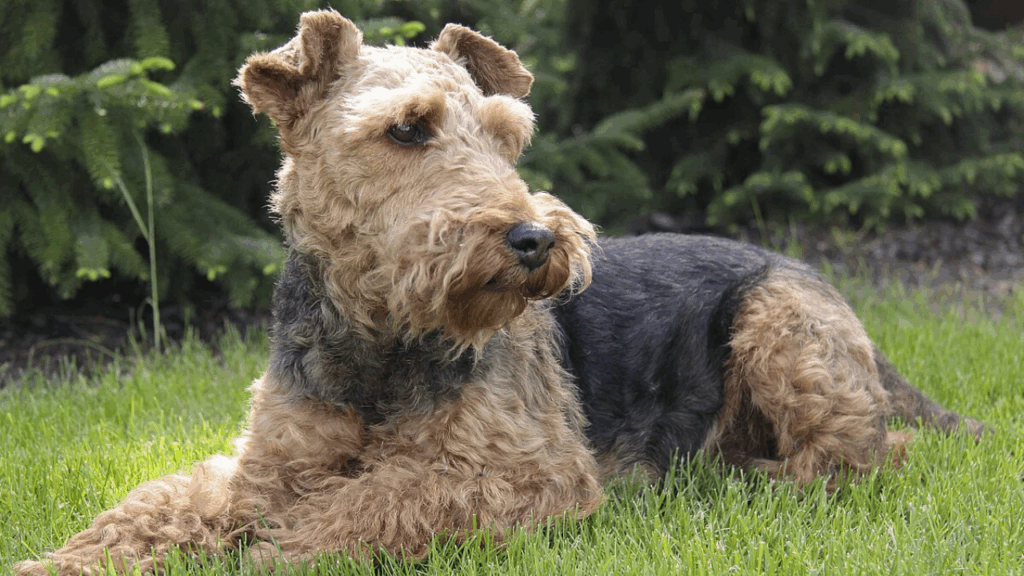The Welsh Terrier, with its wiry coat, keen expression, and lively spirit, is a delightful breed that combines the classic terrier tenacity with a more easygoing temperament. Known for its striking black-and-tan coloring and trademark beard, this breed is as full of personality as it is of charm. Originally bred for hunting and bolting prey from dens, the Welsh Terrier has transitioned beautifully into the role of family companion while retaining the confidence and vigor of its working past.
Origins and History
The Welsh Terrier is one of the oldest terrier breeds, with roots tracing back to Wales in the United Kingdom. It was originally developed to hunt foxes, badgers, and otters, showcasing typical terrier traits like fearlessness, agility, and persistence. It is believed to descend from now-extinct Black and Tan Rough Terriers, which were prized by hunters in the British Isles.
Although the breed has existed for centuries, it was only recognized by the Kennel Club (UK) in 1885. It is sometimes mistaken for a miniature Airedale Terrier due to the similar coloration, but the Welsh Terrier is its own distinct and ancient breed. While still relatively rare compared to other terriers, it enjoys a loyal following among enthusiasts worldwide.
Appearance
The Welsh Terrier is a medium-small, compact dog with a strong, athletic build. It carries itself with confidence and energy.
Notable physical traits:
- Height: Around 15 inches (38 cm) at the shoulder
- Weight: 20–22 pounds (9–10 kg)
- Coat: Dense, wiry, and weather-resistant outer coat with a softer undercoat
- Color: Black and tan (with the black typically covering the back and sides)
- Head: Rectangular in shape, with small, V-shaped ears and expressive dark eyes
Their bearded muzzle and bushy eyebrows give them a distinguished, almost wise appearance, while their lean and muscular frame hints at their energetic nature.
Temperament and Personality
The Welsh Terrier is a classic terrier in spirit—bold, alert, and endlessly curious. However, it is often regarded as one of the more even-tempered and trainable terriers, making it a good option for families and first-time terrier owners.
Key personality traits:
- Lively and fun-loving: Welsh Terriers enjoy playtime and thrive on interactive activities.
- Friendly and social: Typically gets along well with people and other dogs when properly socialized.
- Independent but loyal: They have a mind of their own but form close bonds with their families.
- Fearless and confident: True to terrier form, they won’t back down easily.
Early socialization and training are essential to bring out the best in this intelligent breed. With proper guidance, Welsh Terriers can be excellent with children and adapt well to different lifestyles.
Exercise and Training
Welsh Terriers are high-energy dogs that need regular physical and mental stimulation. Without enough activity, they can become bored and potentially destructive.
Exercise needs:
- At least one hour of daily activity, including walks, play, or off-leash time in secure areas
- Enjoy dog sports such as agility, rally, or earthdog trials
- Mental stimulation through puzzle toys or scent games is also important
Training should be firm, consistent, and positive. Harsh methods don’t work well with Welsh Terriers, as they can be sensitive yet stubborn. Obedience training from an early age helps instill good manners and control.
Grooming and Care
The Welsh Terrier’s wiry coat is low-shedding but does require regular maintenance to keep it looking tidy and healthy.
Grooming essentials:
- Brushing: Several times a week to prevent matting
- Hand-stripping: A traditional grooming method that maintains coat texture (every few months)
- Trimming: If not hand-stripped, they may be clipped, though it can soften the coat
- Ears, nails, and teeth: Regular cleaning and trimming are necessary
Because they are generally clean dogs with minimal odor, grooming is mostly about coat health and appearance.
Health and Lifespan
Welsh Terriers are generally healthy, robust dogs with a lifespan of 12–15 years. They benefit from responsible breeding and routine veterinary care.
Potential health concerns:
- Allergies (skin sensitivities)
- Hip dysplasia (though rare in the breed)
- Hypothyroidism
- Eye conditions like lens luxation
Keeping your Welsh Terrier active, well-fed, and engaged mentally will contribute to a long and happy life.
Ideal Living Environment
Welsh Terriers are adaptable to various living situations, including apartments, as long as they get enough exercise. However, a home with a yard is ideal for them to run and explore safely.
Best suited for:
- Active individuals or families
- Households that enjoy daily walks and outdoor activities
- Pet parents who can provide consistent training and mental stimulation
While they generally get along with other dogs, their strong prey drive may make them less reliable around small pets like hamsters or rabbits.
Conclusion
The Welsh Terrier is a breed that combines historic charm with a bright, modern personality. Spirited, intelligent, and affectionate, this dog is a wonderful match for those who appreciate the terrier temperament but want a more manageable and friendly version. With the right care, training, and companionship, the Welsh Terrier makes a loyal and entertaining companion who will bring joy to any household.

Andy Parker is a dog lover, writer, and senior editor at BarkPicks. With years of experience covering canine health, training, and gear, he helps pet parents make smarter choices for happier, healthier dogs. Andy shares his home (and heart) with two rescue pups, Charlie and Mia.



